Advertisement
Grab your lab coat. Let's get started
Welcome!
Welcome!
Create an account below to get 6 C&EN articles per month, receive newsletters and more - all free.
It seems this is your first time logging in online. Please enter the following information to continue.
As an ACS member you automatically get access to this site. All we need is few more details to create your reading experience.
Not you? Sign in with a different account.
Not you? Sign in with a different account.
ERROR 1
ERROR 1
ERROR 2
ERROR 2
ERROR 2
ERROR 2
ERROR 2
Password and Confirm password must match.
If you have an ACS member number, please enter it here so we can link this account to your membership. (optional)
ERROR 2
ACS values your privacy. By submitting your information, you are gaining access to C&EN and subscribing to our weekly newsletter. We use the information you provide to make your reading experience better, and we will never sell your data to third party members.
Careers
A Look Back
Former chemistry olympians talk about how their careers have unfolded
by Linda Wang
July 16, 2012
| A version of this story appeared in
Volume 90, Issue 29
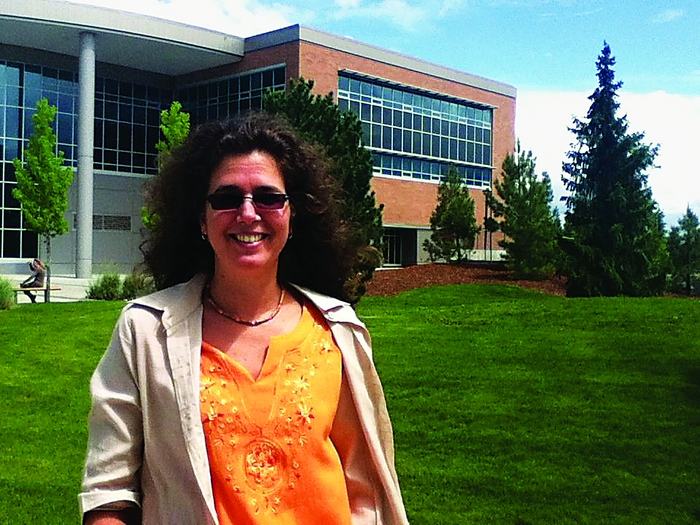
\
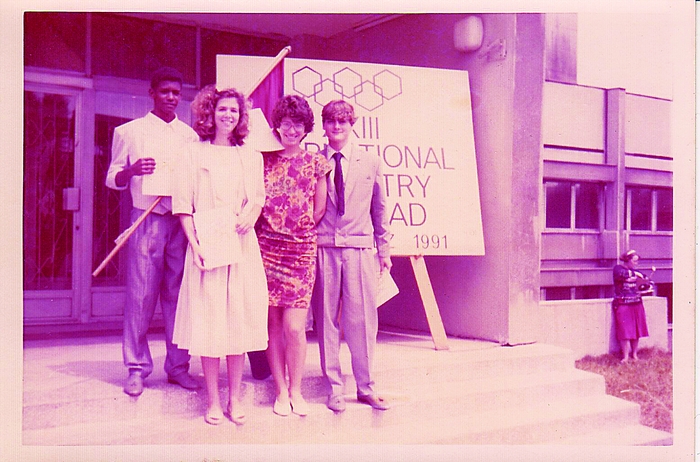
\
Mora-Diez, shown (second from left) with her Cuban teammates at the 1991 IChO in Lodz, Poland, today collaborates with scientists from around the world as a Canadian professor.
At the end of the 44th International Chemistry Olympiad (IChO), after all the medals are awarded and participants return to their home countries, they will quietly join another distinguished group—that of the former chemistry olympians.
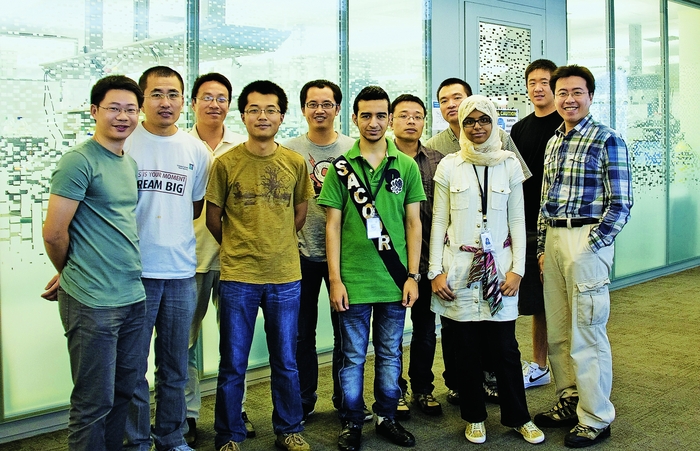
\
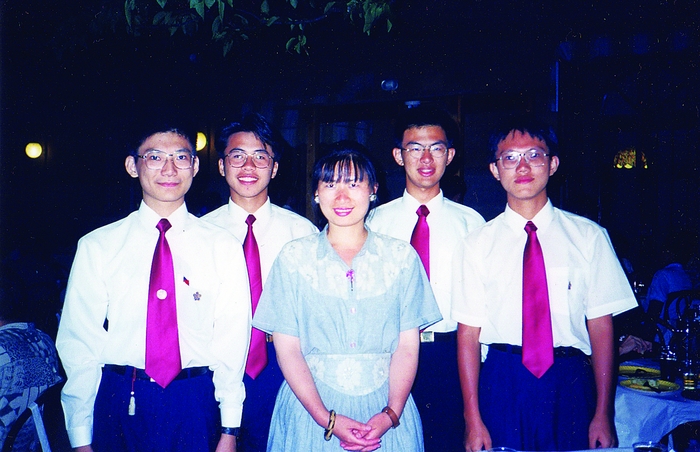
\
Huang (top, right) now runs a research group at KAUST. Huang (bottom, second from left), Yang (right), and other members of Taiwan’s team joined a local guide (center) at the 1993 IChO in Perugia, Italy.
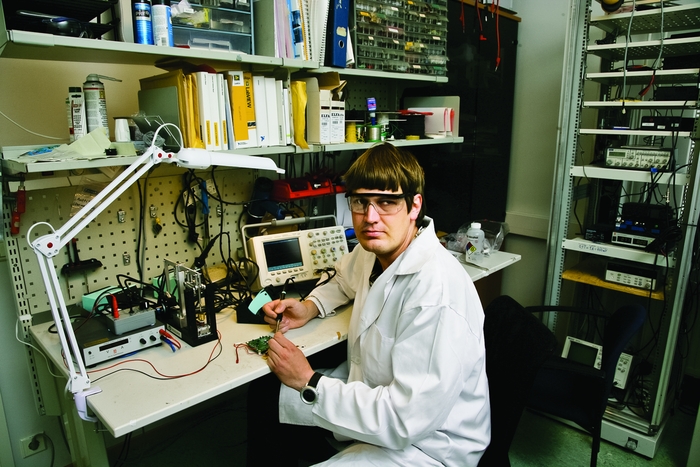
\
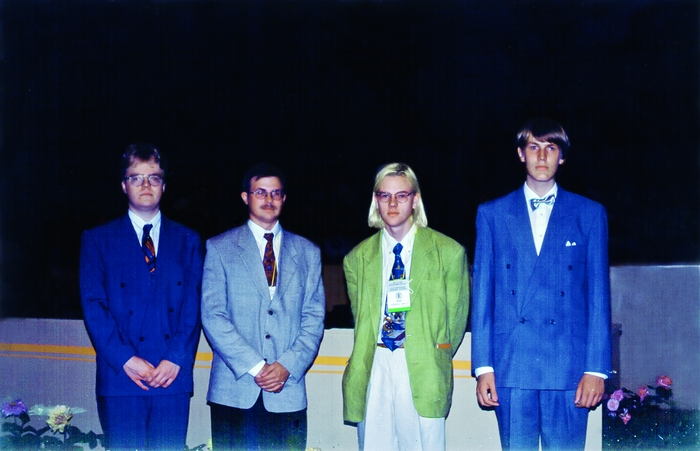
\
Niskanen (right), with his Finnish teammates at the 1995 IChO in Beijing, is now an engineer in Finland.
Since 1968, when the International Chemistry Olympiad began, thousands of high school students have participated in this unique experience. Some have gone on to successful careers in chemistry, while others have pursued different passions. But what these past participants have in common—and what many say the olympiad experience instilled in them—is the confidence to take on new challenges.
When C&EN last checked in with former U.S. team member Swaine Chen in 2001 (C&EN, June 25, 2001, page 35), he was pursuing an M.D./Ph.D. from Stanford University and considering a career as either a physician or an academic researcher.
Chen won a gold medal for the U.S. team in 1992, the only time before this year’s competition that the event was held in the U.S. “The chemistry olympiad helped me an awful lot at that age in shaping what I thought was possible,” he says.
After receiving an M.D./Ph.D. from Stanford, he went on to do a postdoc at Washington University in St. Louis. When he finished in 2008, the economy was in a recession. Like many job seekers, Chen found that opportunities in the U.S. were limited, so he began seeking academic positions abroad.
For the past year and a half, Chen has been an assistant professor of medicine at the National University of Singapore, with a joint appointment at the Genome Institute of Singapore. “I’m very happy here,” he says. “It was a great move for me. The university made me a very good offer, and it was better than the offers I was getting in the U.S. I do believe I have more resources here, and I’m able to expand my program.”
He hopes to return to the U.S. someday, but in the meantime, he’s taking advantage of all that Singapore has to offer, including its proximity to other Asian countries, which makes international travel easy.
Cuban chemist Nelaine Mora-Diez is also living and working in a country far from the one she used to call home. Mora-Diez, who represented Cuba in the 1991 competition in Lodz, Poland, is now an associate professor of chemistry at Thompson Rivers University, in Kamloops, British Columbia.
The olympiad was a turning point in her life. “The opportunity opened doors because it made me deeper in my knowledge about chemistry and about what you could do as a chemist,” she says. “I remember when I was in high school, making the olympiad team was like a dream. I thought that was something so unreachable.”
Mora-Diez knew she wanted to study abroad. After earning a B.Sc. in chemistry from the University of Havana in 1996, she moved to Dalhousie University, in Halifax, Nova Scotia, where she earned a Ph.D. in chemistry. She joined Thompson Rivers as an assistant professor of chemistry in 2003.
There, she is working on computational physical organic chemistry, and she collaborates on research projects with colleagues from several other nations, including Mexico, Algeria, and Spain. Mora-Diez became a Canadian citizen in 2004.
Meanwhile, in South Korea, Turkish chemist Cafer T. Yavuz is designing new materials from oxide and organic building blocks to address environmental challenges.
Yavuz represented Turkey in 1997 in Montreal and in 1998 in Melbourne, Australia, winning a silver and bronze medal, respectively. He is now an assistant professor at the Korea Advanced Institute of Science & Technology (KAIST).
“I’m a chemist today because of the olympiad experience,” he says. “I would have gone into computer science if I weren’t in the olympiad.”
The competition in Montreal marked his first time visiting a foreign country. “I wouldn’t have had the slightest idea of doing my graduate work out of the country if I weren’t exposed to other countries and cultures,” he says.
After receiving his B.S. in chemistry from the Middle East Technical University in Turkey, he moved to the U.S., where he earned a master’s and Ph.D. in chemistry from Rice University. He went on to complete a postdoc in chemistry and biochemistry at the University of California, Santa Barbara.
Now, at KAIST, Yavuz is trying to pass along the mentoring he received as a high school student. He frequently invites local high school students to do science projects with him. “I’m taking the initiative to bring them to chemistry because I know how important it is to change other people’s lives the same as it changed mine.”
His research group is diverse, consisting of postdocs and grad students from India, Pakistan, Turkey, and South Korea. “Five people, four countries in my group,” Yavuz says. The lab’s Turkish postdoc is a former teammate of Yavuz’ from the chemistry olympiad.
Another set of former teammates now find themselves a world apart. Ding-Shyue (Jerry) Yang and Kuo-Wei (Andy) Huang were teammates representing Taiwan in the 1993 IChO in Perugia, Italy. Yang took home a gold medal, and Huang earned a silver. Both subsequently majored in chemistry at National Taiwan University.
Now, Yang is starting a new position as an assistant professor of chemistry at the University of Houston, and Huang is an assistant professor of chemical science at King Abdullah University of Science & Technology (KAUST) in Saudi Arabia.
“You definitely establish your confidence, particularly in chemistry, and that confidence is very important,” Huang says of the olympiad experience. “You find out that you can interact with other people and that may open future opportunities.”
After graduating from National Taiwan University, Yang attended California Institute of Technology, where he earned a Ph.D. and completed a postdoc. Huang also moved to the U.S., earning a Ph.D. from Stanford University and completing a postdoc at Brookhaven National Laboratory. He then spent two years as an assistant professor at the National University of Singapore before moving to KAUST.
Like Yavuz, Huang also takes mentoring seriously. “I believe that education can really impact the younger generation,” he says. While working in Singapore, he participated in the design of the Singapore Junior Chemistry Olympiad. Now, Huang serves as a consultant for the Saudi chemistry olympiad team.
Alex MeVay, who earned a silver medal for the U.S. team in the 1996 IChO in Russia, embarked on a different kind of adventure after graduating from Massachusetts Institute of Technology with a degree in electrical engineering.
“I bought a sailboat in the Caribbean and sailed around Central America and then back to Boston over eight months,” he says. “That was a fantastic experience, because I didn’t realize how burned out I was after undergrad, and it was great to have some time to get my creative juices flowing again.”
He returned to Boston to work for Holosonics, a company developing loudspeaker technologies. As a hobby, he got involved with the MIT solar vehicle team designing battery packs. It occurred to him that the same technology could be applied to sailboats.
Today, MeVay is founder of Genasun, a Cambridge, Mass.-based company developing lithium batteries for the marine market as well as solar charge controllers. The company employs five people and is looking to expand its product line.
MeVay admits that he never planned on becoming an entrepreneur, but he says that the olympiad gave him “a very good sense of self-confidence.”
For former chemistry olympians, it can be a challenge simply to stay in touch with one another. For many years after the 1995 IChO in Beijing, Antti J. Niskanen, who represented Finland in the competition, maintained a website with the e-mail addresses and personal webpages of more than 50 of his peers. Although he stopped actively maintaining the website around 2002, Niskanen says he hopes it allowed friendships to continue well after the competition ended.
After the competition, Niskanen went on to earn a master’s in chemistry in 2002 from Helsinki University of Technology (now Aalto University). He continued working at the university as a research scientist while pursuing a Ph.D. in semiconductor technology, which he earned this past spring.
Currently, Niskanen is an applications development engineer for Finnish start-up company Adaptamat, which specializes in Ni-Mn-Ga magnetic shape memory alloys.
Although Niskanen did not win a medal during the olympiad, he looks back fondly at the experience. “For me, it was an opportunity to have fun with similarly minded peers,” he says. “That bunch of people has its own brand of humor, one you can’t find anywhere else.”

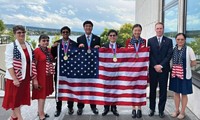
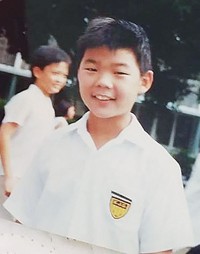
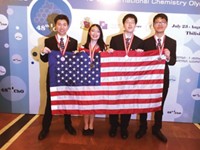

Join the conversation
Contact the reporter
Submit a Letter to the Editor for publication
Engage with us on Twitter